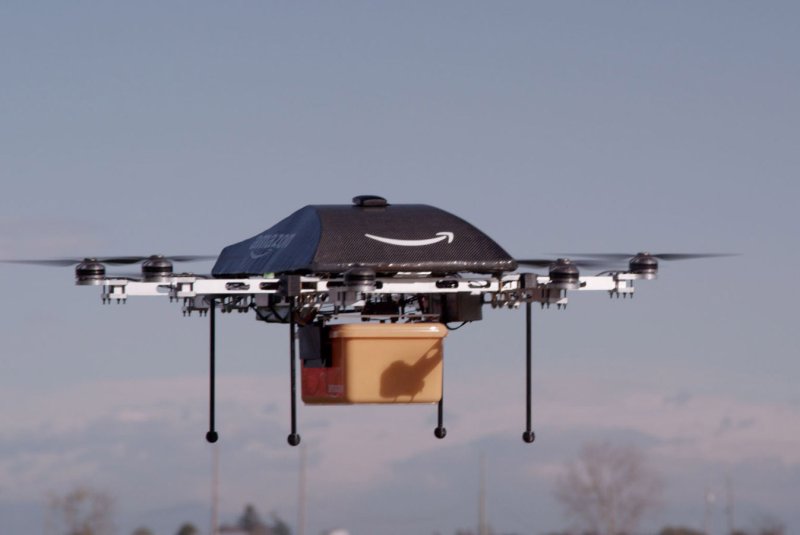1 of 2 | This undated Amazon.com image shows a prototype of their Prime Air delivery drone which Amazon hopes to use to deliver packages to customers in as little as 30 minutes, December 2, 2013. Amazon CEO Jeff Bezos said putting the Prime Air feture into commercial use will take "some number of years" as Amazon develops technology and waits for the Federal Aviation Administration to create guidelines. UPI/Amazon |
License Photo
WASHINGTON, Feb. 16 (UPI) -- The Federal Aviation Administration's new proposed regulations, released Sunday, are a major setback for Amazon's plan to use drones for commercial delivery purposes.
The rules would require non-recreational unmanned aerial vehicles to be under 55 pounds, only operate in daylight and remain in the operators' line of sight at all times. The regulations also address height and speed restrictions, operator certification, aircraft registration, and marking and operational limits.
Amazon said its Prime Air service would allow packages to be delivered in 30 minutes or less by a small unmanned aerial vehicles.
According to an analysis by the FAA, the economic benefits of commercial drone use would exceed over $100 million a year.
Under the federal regulation, drones could not fly over anyone not involved in the operation, a major obstacle for the largest online retailer.
"We have tried to be flexible in writing these rules," said FAA Administrator Michael Huerta in a statement. "We want to maintain today's outstanding level of aviation safety without placing an undue regulatory burden on an emerging industry."
In July, the company wrote a letter petitioning the FAA for expedited authorization to conduct research for the service. It has been testing drones abroad since 2013.
According to Amazon, the aerial vehicles would fly over 50 miles per hour and would distribute 86 percent of its products sold.
Despite the regulations, the company says it still plans to pursue the project.
"We are committed to realizing our vision for Prime Air and are prepared to deploy where we have the regulatory support we need," Paul Misener, Amazon's vice president for global public policy, told the New York Times.















